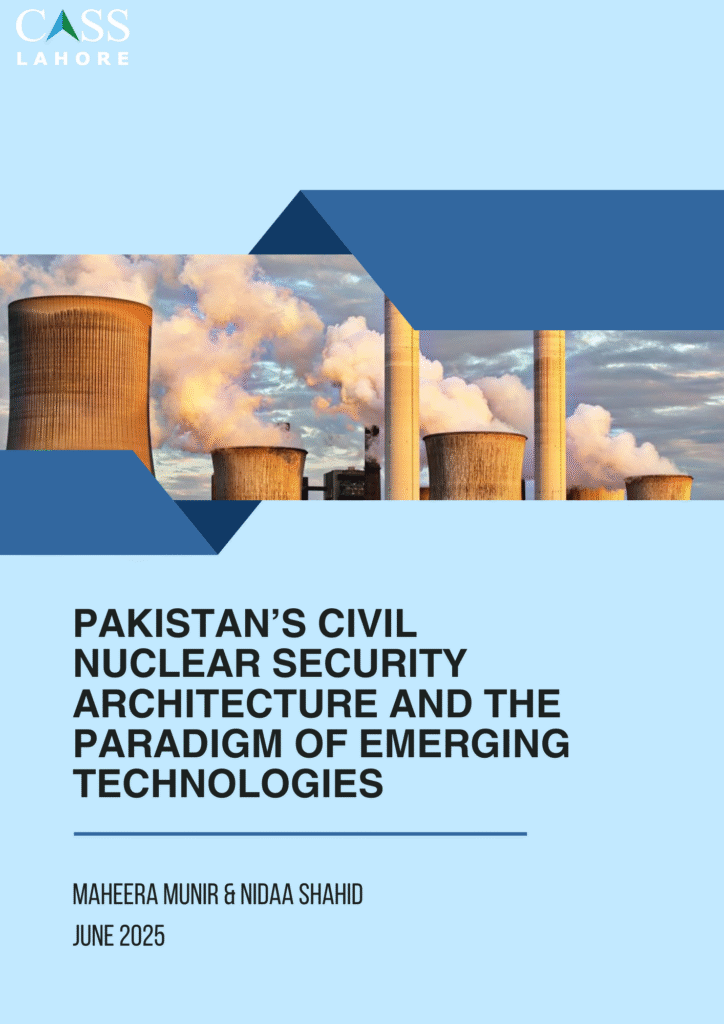PAKISTAN’S CIVIL NUCLEAR SECURITY ARCHITECTURE AND THE PARADIGM OF EMERGING TECHNOLOGIES

ABSTRACT
Nuclear energy stands as a pivotal solution to the burgeoning global energy demand, yet its dual nature as a potent energy source and a potential security threat necessitates rigorous attention to nuclear security measures. Pakistan has a state-of- the-art civilian nuclear security regime constituting legislative and regulatory framework, institutions and organisations, and other systematic measures. It also complies vigorously with the global nuclear security architecture. This paper argues that while Pakistan has been internationally recognised as a responsible nuclear state with state- of-the-art nuclear security regime, the complex landscape of emerging technologies such as Artificial Intelligence, Unmanned Aerial Systems, and 3D Printing, etc. pose formidable challenges. This paper finds that the dual-use nature of these technologies makes them a rapidly evolving threat which all countries with civilian nuclear programs, including Pakistan, will have to contend with. Drawing on these insights, this paper offers policy recommendations to assist Pakistan in further fortifying its civilian nuclear security architecture, thereby mitigating risks and safeguarding against any potential vulnerabilities in the future.

Published in Pakistan Journal of Integrated Social Sciences (PJISS) Vol 2, No 1 (2025)
CASS LAhore

The Centre for Aerospace & Security Studies (CASS) was established in July 2021 to inform policymakers and the public about issues related to aerospace and security from an independent, non-partisan and future-centric analytical lens.
CASS Newsletter
- Home
- About Us
- Research Domains
- Publications
- Events
- Gallery
- Contact Us
@2021 - All Right Reserved. Designed and Developed by PenciDesign




